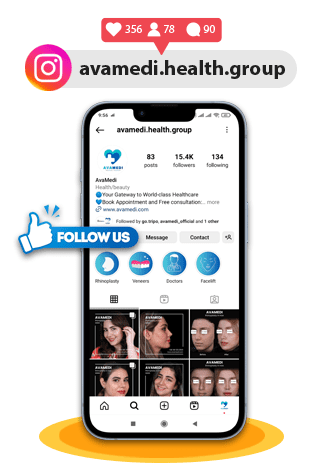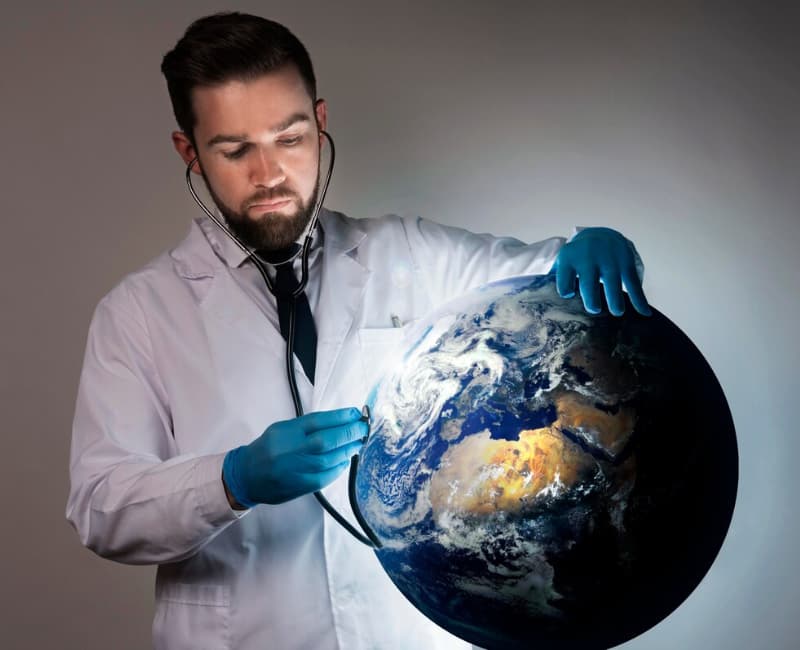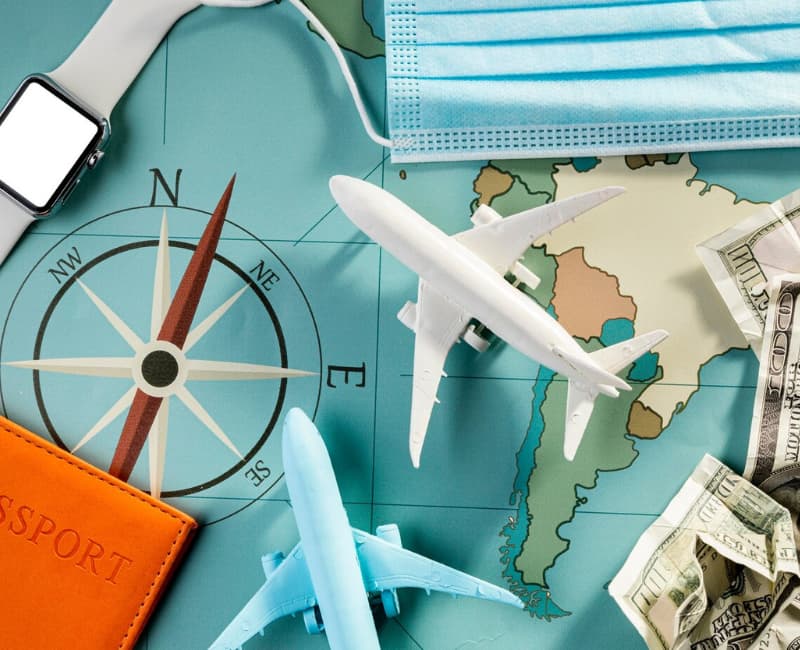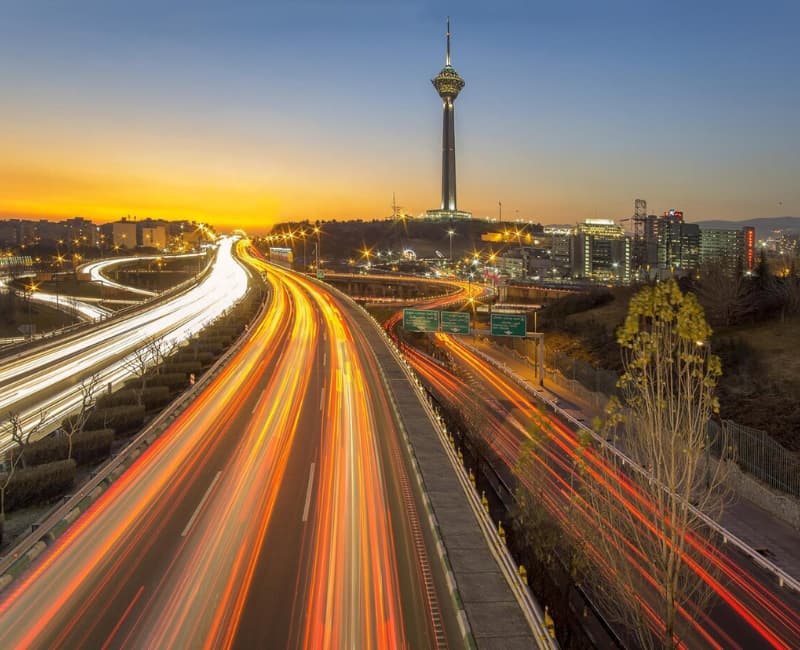Iran, a country known for its rich history, culture, and unique landscapes, has also gained significant recognition in recent years as a growing hub for medical tourism. With its advanced healthcare system, highly qualified doctors, and affordable medical procedures, Iran attracts thousands of international patients annually seeking treatments ranging from cosmetic surgeries to complex medical procedures. However, questions about safety arise when considering Iran as a destination for medical treatment. Is it safe to travel to Iran for medical care?
This article explores the safety of travel to Iran for medical treatment, focusing on healthcare standards, political stability, travel considerations, and overall patient experiences.
Avamedi Provides different services like Rhinoplasty in Iran and Facelift in Iran
Overview of Medical Tourism in Iran
Medical tourism in Iran has grown significantly in recent years. The country offers a variety of medical treatments, including cosmetic surgery (rhinoplasty, liposuction, and hair transplants), dental care, infertility treatments, and orthopedic surgeries, among others. Iran’s reputation for affordable, high-quality care, combined with its skilled surgeons and modern medical facilities, has positioned it as a major player in the global medical tourism market.
Key Reasons Why People Choose Iran for Medical Treatment
- Affordability: One of the primary reasons for Iran’s growing appeal as a medical tourism destination is the cost. Medical procedures in Iran can be 50% to 70% cheaper compared to the same treatments in Western countries.
- Highly Skilled Medical Professionals: Iran boasts a large number of internationally trained doctors, particularly in fields like cosmetic surgery, fertility treatment, and ophthalmology. Many Iranian doctors have studied or worked in countries like the United States, the United Kingdom, and Germany.
- Advanced Medical Infrastructure: Many hospitals and clinics in major cities like Tehran, Shiraz, and Mashhad are equipped with state-of-the-art medical technology, offering modern facilities to international patients.
- Cultural and Religious Ties: Iran’s medical tourism sector is especially popular among people from neighboring countries in the Middle East and Central Asia, where cultural and religious similarities make Iran an appealing choice.
Despite these advantages, safety concerns remain a key consideration for those considering medical travel to Iran.
Read more: The Ultimate Guide to Nose Job in Iran or Turkey
Is It Safe to Travel to Iran?
Political and Social Stability
Iran has experienced political tensions and sanctions in recent decades, particularly with Western countries. These geopolitical factors can sometimes give the impression that the country is unsafe for international visitors. However, despite the political landscape, Iran is generally regarded as safe for tourists, including medical tourists.
Iran has a well-established system for ensuring the safety of international visitors, especially in the medical tourism sector. Major cities where medical tourism is concentrated—such as Tehran, Shiraz, and Isfahan—are generally considered safe and hospitable for foreign patients. There is a notable difference between the country’s international politics and the day-to-day experiences of tourists and medical visitors.
Iran’s government places a high value on its medical tourism sector, and there are strict regulations in place to ensure that international patients receive proper care in a secure environment. The Iranian people are known for their hospitality, and many medical tourists report positive interactions and a sense of security during their stay.
Medical Safety and Healthcare Standards
The safety of medical treatments in Iran is a major consideration for international patients. Iran’s healthcare system is well-regulated and adheres to high standards, particularly in the major medical centers. Many of the top hospitals in Iran are internationally accredited, and medical staff undergo rigorous training, ensuring they are capable of delivering world-class care.
Iranian medical professionals, particularly surgeons and specialists, are often highly experienced and have access to modern medical equipment. This high level of expertise is particularly evident in fields like cosmetic surgery, ophthalmology, and fertility treatments, where Iranian doctors have earned a strong international reputation.
Accredited Hospitals and Clinics
Before traveling to Iran for medical treatment, it’s essential to ensure that the hospital or clinic you plan to visit is properly accredited and follows international healthcare standards. Many of Iran’s leading hospitals are recognized by international health organizations, ensuring that they meet stringent safety and quality requirements. These institutions are equipped with modern technology and staffed by skilled healthcare professionals.
Hospitals and clinics in cities like Tehran, Shiraz, and Mashhad are especially known for their advanced facilities, offering a range of treatments for both local and international patients. Patients are advised to do thorough research and choose medical centers that are transparent about their credentials, success rates, and patient testimonials.
Communication and Language Barriers
For many medical tourists, especially those from Western countries, language barriers may raise concerns. While Persian (Farsi) is the official language of Iran, many healthcare professionals, particularly in major medical centers, speak English. Most international hospitals in Iran employ translators to assist patients throughout their medical journey, from consultations to follow-up care. This can alleviate concerns about communication issues, ensuring that patients fully understand their treatment options and post-operative care.
Travel Safety Considerations
Beyond medical concerns, many potential medical tourists wonder about the overall safety of traveling to Iran for medical treatment. For most travelers, the experience is positive, but it’s important to keep certain travel safety considerations in mind.
1. Political Tensions and Sanctions
Although Iran is a safe destination for medical tourism, it is important to be aware of the country’s political situation. International tensions, particularly between Iran and certain Western nations, can affect travel policies, visa processes, and financial transactions. Patients from countries that have strained diplomatic relations with Iran, such as the United States, the United Kingdom, or Canada, should check with their respective embassies about travel advisories and visa requirements.
2. Visa Requirements
For medical tourists, Iran offers a streamlined visa process. Patients can apply for a medical visa (Treatment Visa – T Visa), which allows entry into the country for medical purposes. Many medical tourism agencies in Iran assist with visa applications, providing patients with the necessary documentation from hospitals and clinics. Processing times for medical visas are usually faster than standard tourist visas.
3. Cultural Considerations
Iran has a rich cultural heritage and follows Islamic laws and customs, which may differ from what some international visitors are used to. Modest dress is required in public, and women are expected to wear headscarves. While this may seem unfamiliar to some, most visitors find that respecting these cultural norms is straightforward and does not detract from their overall experience.
4. Safety in Cities
Iran’s major cities are generally very safe for tourists, with low crime rates compared to many Western countries. Most international patients stay in medical tourism hubs like Tehran, Shiraz, and Mashhad, where they can enjoy the sights and experience Iranian culture while recovering. These cities are well-equipped with modern amenities, and the government takes extra precautions to ensure the safety of international visitors.
Avamedi Provides different services like Tummy Tuck in Iran and BBL in Iran
Quality of Care and Patient Experience
Positive Patient Outcomes
Iran’s reputation for medical tourism is bolstered by a long history of successful patient outcomes. Many international patients have reported excellent experiences with both the quality of care and the professionalism of the medical staff. Whether seeking cosmetic surgery, dental work, or more complex treatments, patients often find that the level of care rivals that of leading hospitals in Europe or North America.
Post-Treatment Care
Another important aspect of medical travel is post-operative care. In Iran, patients typically receive high-quality follow-up care, with medical professionals closely monitoring their recovery. Many hospitals and clinics offer comprehensive post-treatment packages that include regular check-ups, consultations, and even arrangements for physical therapy if needed. Medical tourism agencies often facilitate these services, ensuring that international patients receive continuous care even after they return home.
Patient Reviews and Testimonials
Many medical tourists rely on patient reviews and testimonials when choosing a destination for treatment. Iran’s medical facilities often receive positive feedback from international patients. Reviews frequently highlight the professionalism of the staff, the affordability of care, and the successful outcomes of various procedures. Patients from neighboring countries in the Middle East, Central Asia, and even Europe have shared their positive experiences in online forums and review sites, further solidifying Iran’s reputation as a safe and effective medical tourism destination.
Potential Risks of Travel to Iran for Medical Treatment
While Iran is generally safe for medical tourism, it’s important to acknowledge potential risks and make informed decisions.
- Geopolitical Uncertainty: While daily life in Iran is stable and safe, it’s important to stay informed about any changes in international relations or regional tensions that could impact travel.
- Financial Transactions: Due to international sanctions, it can be challenging to make direct financial transactions with Iranian banks. Most medical tourists are advised to carry cash or use medical tourism agencies that help facilitate payments.
- Travel Insurance: Ensure you have comprehensive travel and medical insurance that covers international treatments, including coverage for any potential complications that may arise after surgery.
Conclusion
Traveling to Iran for medical treatment can be a safe and cost-effective option for those seeking high-quality healthcare. With its world-class medical facilities, experienced professionals, and affordable treatment options, Iran has positioned itself as a leading destination in the global medical tourism industry. However, as with any medical tourism destination, it’s crucial to do thorough research, choose accredited medical providers, and stay informed about the country’s political and cultural landscape.
By taking the necessary precautions and working with reputable healthcare providers, patients can safely enjoy the benefits of Iran’s advanced medical care while experiencing its rich culture and hospitality.





















